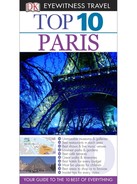Banking & Communications
Currency
The euro (€), the single European currency, is now operational in 16 of the 27 member states of the EU, including France. Euro banknotes have seven denominations: 5, 10, 20, 50, 100, 200 and 500. There are also eight coin denominations: €1 and €2, and 50, 20, 10, 5, 2 and 1 cents (also referred to as centimes!). Both notes and coins are valid and interchangeable within each of the 16 countries. Check on exchange rates against your own currency at the time of travel.

Changing Money
Bureaux de Change exist throughout Paris, especially near tourist hotspots. Many banks also have either a bureau de change or foreign desk. “No commission” signs can be misleading, as they probably mean an unfavourable rate. If changing a large amount, a bank is usually best.
Postcards
For simple letters and postcards home, you can buy stamps at a tabac (tobacconist) rather than try to find a post office. Not all of them advertise the service, but if they sell postcards it is worth asking. Some hotels and newsagents also sell postage stamps.
Telephones
Paris phone numbers begin with 01 and have eight subsequent digits, usually written in four sets of two digits. If calling Paris from overseas, drop the zero from “01”. Most public telephones require a télécarte (phonecard), which can be bought from post offices, metro stations, tobacconists and a few other outlets.
Parisian public telephone
Internet Cafés
These aren’t as common as in some cities but are rapidly on the increase and it should not be hard to track one down. Many cafés also provide WIFI access. Try the internet café Pariscy at
8 rue de Jouy, 75004
01 42 71 37 37. Or search for one at www.cafes-wifi.com.Newspapers and Magazines
A wide choice of the major foreign newspapers is available on the day of publication throughout Paris. The closer you are to the Champs-Elysées, the more you will see. The popular International Herald Tribune is published in Paris.
Television and Radio
Most hotels subscribe to multilingual cable and satellite channels, which vary the diet of French-language entertainment.



